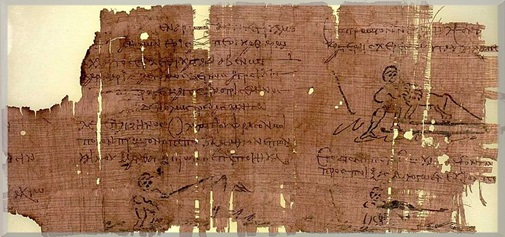The World-Cultural-Heritage
Das Weltkulturerbe
Diplomaten der Welt
It Is Time To Open The Circuit Of Life By Action!
You as the Ambassadors are called to act in the 21st century with all your possibilities that are given to you!
At first stop the hunger, the abortions and the wars worldwide.

The World-Cultural-Heritage
Das Weltkulturerbe
Ursula Sabisch, Germany, Luebeck, 2015, July 28th
It is time to open the circuit of life by action!
You as Ambassadors are called to act in the 21st century with all your possibilities that are given to you!
At first stop the hunger, the abortions and the wars worldwide.
The same is valid for you as the German Ambassadors, because nearly all of you are able to speak English or more than one language and you are some of the great breadwinners! |
Botschafter
From Wikipedia, the free encyclopedia
(Redirected from Embassador) Botschafter,
frz. Ambassador.
Ein Botschafter (frz. ambassadeur, engl. ambassador) ist ein Diplomat, also der beamtete oberste Beauftragte eines Staates in einem anderen Land oder bei einer internationalen Organisation. Er wird vom Außenministerium entsandt und ist der persönliche Repräsentant des Staatsoberhauptes seines Landes.
Das Diplomatische Corps eines Landes wird vom dienstältesten Botschafter, dem Doyen, geleitet, wenn nicht der Apostolische Nuntius vom Empfangsstaat zum Doyen bestimmt wurde.
Agenden und Stellung eines Botschafters
Seine Aufgabe als Leiter einer Botschaft ist die Vertretung der Interessen seines Landes gegenüber dem Gastland, was enge Beziehungen zu Regierung, Opposition und gesellschaftlichen Organisationen im Gastland erfordert.
Um die uneingeschränkte Interessenvertretung zu ermöglichen, wird Botschaftern als Diplomaten Immunität gewährt. Der repräsentative Wohnsitz des Botschafters und seiner Familie wird Residenz genannt und ist wie die Kanzlei der Botschaft kein exterritoriales Gebiet für den Gaststaat, sondern hinsichtlich seiner Unverletzlichkeit dem Schutz des Geländes der Botschaftskanzlei gleichgestellt (Art. 1 Buchstabe i WÜD).

Ein Botschafter befindet sich in einem teilweise schwierigen Spagat, da er einerseits für die Politik in seinem fern liegenden Heimatstaat mit verantwortlich gemacht wird (obwohl er darauf aus dem Ausland kaum Einfluss hat), andererseits soll er gute Beziehungen pflegen und wichtige Informationen über seinen Gaststaat liefern.
Ob und wie diese Analysen dann von den Abteilungen des eigenen Außenministeriums tatsächlich verwendet werden, kann er aus der Ferne kaum beeinflussen.
Ausländische Botschafter werden üblicherweise mit „Exzellenz“ angeredet. Gegenüber dem Botschafter des eigenen Landes verwendet man schlicht „Frau Botschafter" respektive "Herr Botschafter“. Ein Apostolischer Nuntius, ein päpstlicher Gesandter im Botschafterrang, wird traditionell mit „Hochwürdigste Exzellenz“ angeredet.
 Die Gesamtheit des diplomatischen Personals in einem Gastland wird als Diplomatisches Corps bezeichnet.
Die Gesamtheit des diplomatischen Personals in einem Gastland wird als Diplomatisches Corps bezeichnet.
______________________________
The same is valid for you as German Ambassadors, because nearly all of you are able to speak English or more than one language and you are some of the great breadwinners!
Ambassador
From Wikipedia, the free encyclopedia
(Redirected from Embassador)
This article is about ambassadors in general. For other uses (including specific types of ambassadors), see Ambassador (disambiguation).
Hans Holbein the Younger:
The Ambassadors, 1533. The life-sized panel portrays Jean de Dinteville and Georges de Selve, the ambassadors of Francis I of France.
An ambassador is an official envoy, especially a highest ranking diplomat who represents a state and is usually accredited to another sovereign state, or to an international organization as the resident representative of their own government or sovereign or appointed for a special and often temporary diplomatic assignment.[1]
The word is also often used more liberally for persons who are known, without national appointment, to represent certain professions, activities and fields of endeavor.
In its most common use, the term usually applies to the ranking government representative stationed in a foreign capital.
The host country typically allows the ambassador control of specific territory called an embassy, whose territory, staff, and vehicles are generally afforded diplomatic immunity in the host country.
The equivalent to an Ambassador exchanged among members of the Commonwealth of Nations are known as High Commissioners. The "ambassadors" of the Holy See are known as Papal or Apostolic Nuncios.
As formally defined and recognized at the Congress of Vienna (1815), ambassadors were originally regarded as personal representatives of their country's chief executive rather than of the whole country, and their rank entitled them to meet personally with the head of state of the host country.
Since 1945, all nations have been recognized as equals, and ambassadors or their equivalents are sent to all countries with which diplomatic relations are maintained. Before the development of modern communications, ambassadors were entrusted with extensive powers. ___________________________
___________________________
It is time to open the circuit of life by action!
You as Ambassadors are called to act in the 21st century with all your possibilities that are given to you!
At first stop the hunger, the abortions and the wars worldwide.
